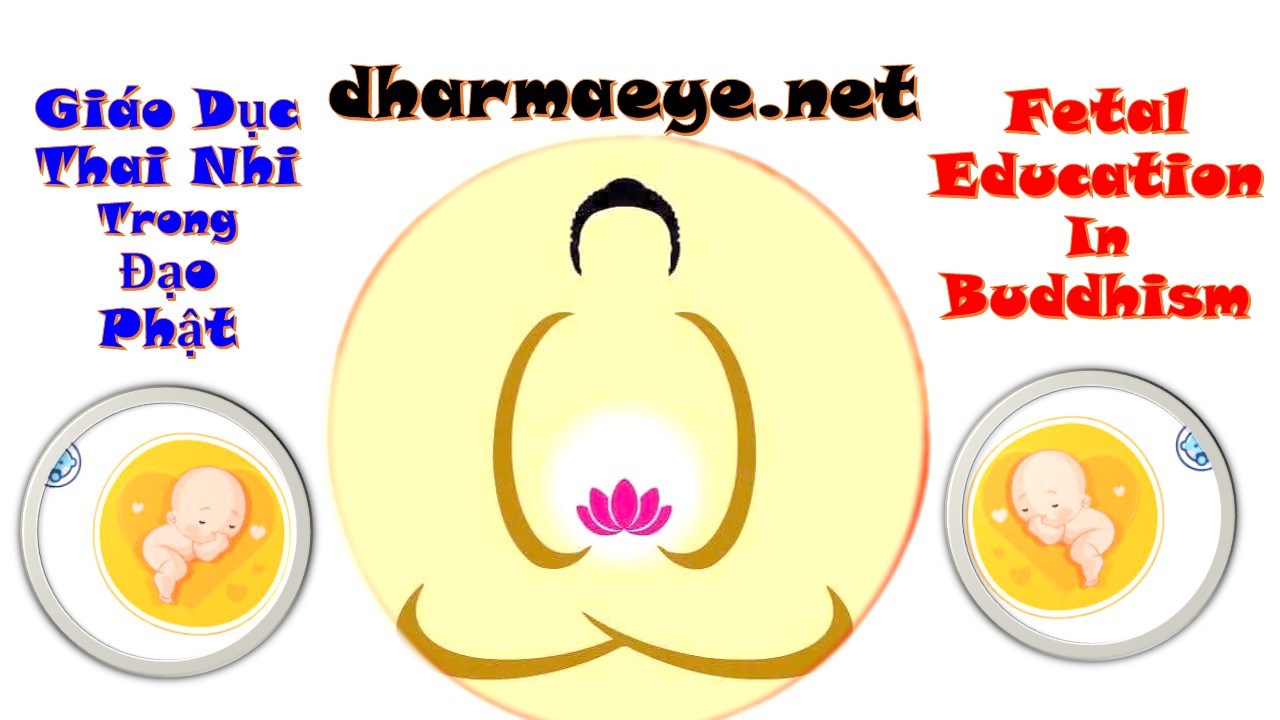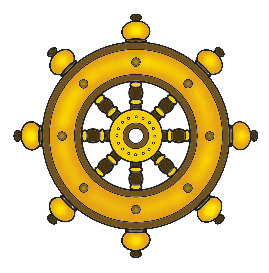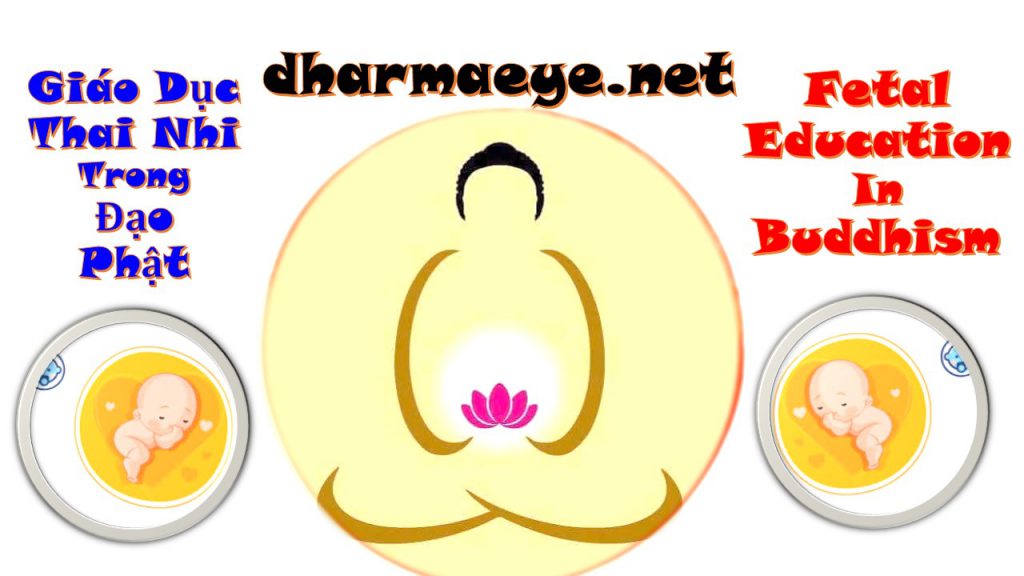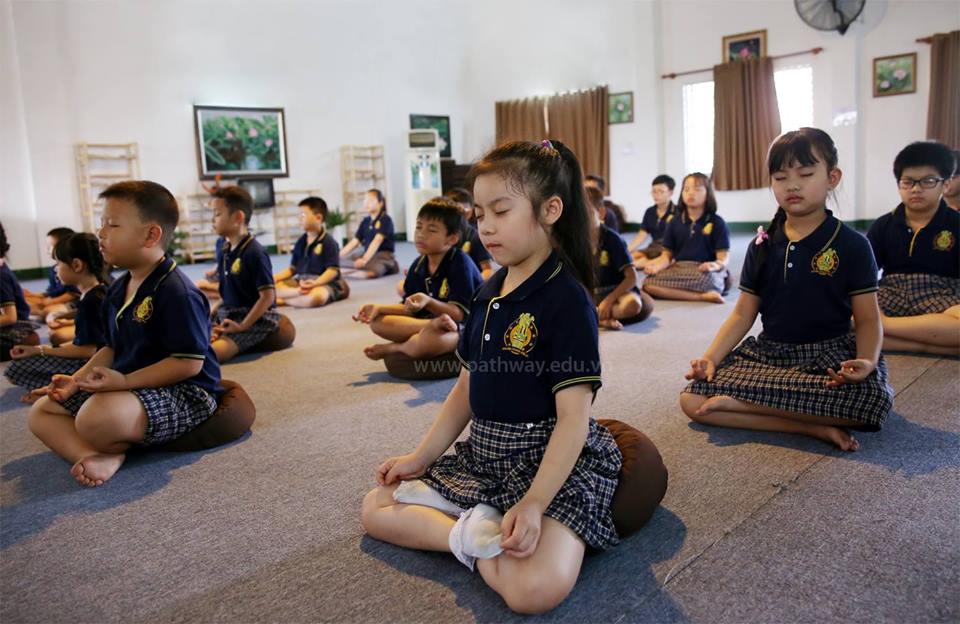Thích Trừng Sỹ

Fetal Education in Buddhism
General introduction
Fetus originates from an embryonic form of the living germ of a human or an animal.
It is formed by father’s sperm, mother’s ova, karmanic consciousness, or rebirth consciousness (Gandhabha), food, drink, light, time, air, warmth, etc.
Because of the power of karma, human beings are born into different family with fathers and mothers with compatible karmic patterns with them while because of the vow power of saving living beings, the Buddha, Bodhisattvas, saints, holy Sangha, etc., are present in life.
Fetal education in Buddhism
Time of an adult fetus in a mother’s womb
fetal education in the mother’s womb
Children’s gratitude to their parents
Based on Sutra of repaying parents’ gratitude
The Buddha has taught children’s deep gratitude to parents.
Dear Ananda, about the mother’s thankful virtue, within the ten months, she walks up and down heavily, her pregnancy gets tired, and suffering is indescribable.
When the fetus is just a month old, in the mother’s womb, life of the fetus is very fragile like a dewdrop sticking on grass, early in the morning, it still accumulates, by noon it has dissipated, and it is not durable.
When the fetus is two months old, in the mother’s womb, it is like a lump of condensed milk, easily broken.
When the fetus is three months old, in the mother’s womb, it is like a blood clot.
When the fetus is four months old, in the mother’s womb, it slightly begins to take on a human form.
When the fetus is five months old, in the mother’s womb, it begins to take on a human shape consisting of a head, two arms, and two legs.
When the fetus is six months old, in the mother’s womb, it has six sensory faculties: eyes, ears, nose, tongue, body, and mind.
When the fetus is seven months old, in the mother’s womb, it has enough three hundred and sixty bones to be formed and eighty-four thousand hair pores to be completed.
When the fetus is eight months old, in the mother’s womb, its visceras (internal organs), intellects, nine apertures (holes) are formed.
For example, brain, spinal cord, heart, liver, lung, kidney, stomach, spleen, colon, large intestine, small intestine, bladder;
two nostrils apertures, two ears apertures, two rheum apertures, mouth aperture, urinary aperture, and sanitary aperture or anus.
When the fetus is nine months old, in the mother’s womb, it is full of people, sitting in the mother’s womb, it learns to absorb various nutrients of foods and drinks, it is squeezed by the mother’s internal organs like Sumeru mountain: karma mountain, blood mountain, mucus mountain of mucus poured into the mouth of the fetus.
In the mother’s womb, within ten months, one hundred percent whole, until the day of birth, if the child is filial, it will clasp its palms in respect and come out easily, the mother’s birth will be peaceful and auspicious without hurting the mother.
However, if the child is uncomfortable and rebellious in nature, it struggles a lot, hurts its mother’s womb, and rips apart its mother’s heart and liver. The birth will feel like the slices of a thousand knives or like ten thousand sharp swords stabbing her heart extremely painfully.
Thus, when a baby was born, its mother meets joy and sadness be mixed.
Buddha said to Ananda: Thankful merit of compassion mother includes ten things, those who makes children have to worry about filial piety. What are ten?
The first is the kindness of providing protection and care while the child is in the mother’s womb.
The second is the kindness of bearing suffering during the mother’s birth.
The third is the kindness of forgetting all the pain once the child has been born.
The fourth is the kindness of eating the bitter herself and saving the sweet for the child.
The fifth is the kindness of moving the child to a dry place and lying in the wet herself.
The sixth is the kindness of suckling the child at her breast and nourishing and bringing up the child.
The seventh is the kindness of washing away the defilement for the child.
The eighth is the kindness of always thinking of the child when it is away from home.
The ninth is the kindness of looking after the child thoroughly
The tenth is the kindness of expecting when the child grows up to become a talented and virtuous person in life.






















